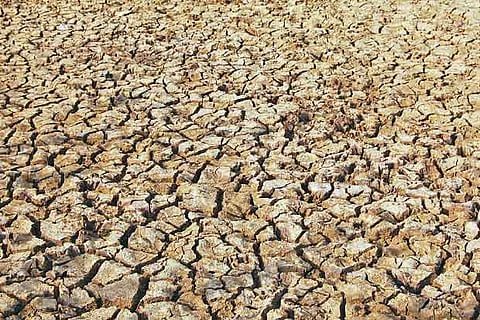

Thiruchirapalli
Experts also said that this condition has been prevailing ever since Cyclone Fani made its landfall last month. Post the cyclone, most parts of the state experienced high temperatures between 106 and 113 degrees Fahrenheit.
The average maximum temperature in the state was 99.5 degrees and the minimum temperature was 78.98 degree during 1981-2010. Presently, the temperature has increased in most parts of the Cauvery delta districts, where farmers are contemplating taking up kuruvai cultivation with the support of ground water.
The past few days have seen excess heat as ‘Agni Natchathiram’ prevailed in the entire region. Experts have predicted that the heat waves would not only affect the people, but also would have an impact on the cultivable lands.
According to agriculture experts, the high temperature has resulted in the further depletion of groundwater in almost all parts of the delta region. In most cases, the soil may turn saline after the land becomes barren. “In several parts of the delta region, the maximum temperature stands at 108 degrees and the humidity is between 65 and 70 per cent,” a retired official from the Agri department said.
He also said that the evaporation of groundwater would bring salinity to the land surface, which would then impact cultivation. “In such a situation, the paddy crop would wither. In some cases, even the germination process would fail and so the entire crop may decay. This would result in very less yield,” the official said, adding that even short-term crops like black gram, maize and cotton would get damaged or wither.
The officials suggested that cultivation on such dried-up lands be stopped and to maintain the moisture content of the surface for the next season. However, they said the situation is likely to change following the rains as the onset of south west monsoon was imminent.
Visit news.dtnext.in to explore our interactive epaper!
Download the DT Next app for more exciting features!
Click here for iOS
Click here for Android